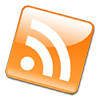

Many online resources have an automated "alerts" service, where a brief overview of new content is sent out to "subscribers".
Depending on the source, you are alerted to:
Depending on the source, alerts will arrive as:
Saved Search alerts let you have a search repeated automatically, and have new results sent to you
e.g. every 2 weeks, email you any new journal articles added to a database that match your search criteria.
Instructions for setting up saved search alerts:
Table of contents alerts send you the table of contents every time a new journal issue is released. Use them to keep track of your favourite journals.
Some resources will only alert you to when a new issue is released but not email you the table of contents.
Citation alerts can alert you to new publications which have used a specific document as a reference
- for example, an alert can let you know when somebody has cited your publication.
 RSS stands for Rich Site Summary or alternatively as Really Simple Syndication.
RSS stands for Rich Site Summary or alternatively as Really Simple Syndication.
It is a way for websites to send out updates about new material via a stream of information known as a feed. You can subscribe to these feeds via a feed reader. This way, you do not have to return to a website to check for new material, you simply let your feed reader collect updates for you so that you can look at the updates when you have the time.
Researchers can use RSS feeds to subscribe to important blogs and websites in their subject area and relevant searches within databases, using keywords in their research area. RSS feeds allow researchers to keep up to date with new and emerging areas of information in their field.
You will need a reader to access the RSS feeds. RSS readers are available freely on the internet, or as part of your email or browser software. Some are:
See this page for some recommended research blogs to follow (or alternatively, bookmark that page for regular reading).
Many relevant conferences will be announced in professional journals, trade magazines, and newsletters.
Here are two websites that attempt to list upcoming conferences to be held in Australia. Note there is no academic quality control of the conferences submitted and listed:
You can set up a Google alert to match web search results against your search terms, and send you emails of new (or updated) web pages that match.